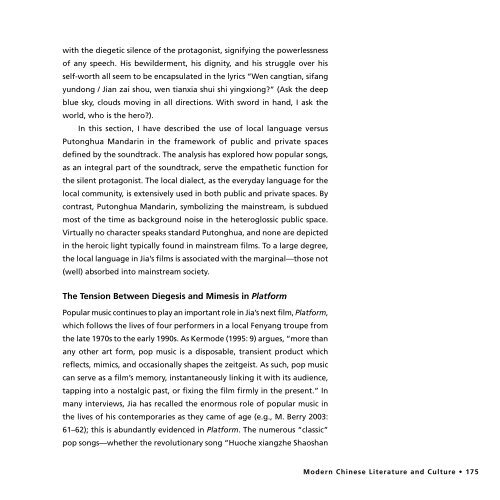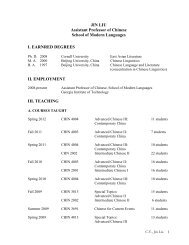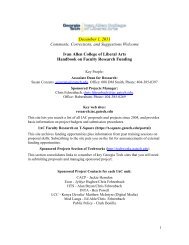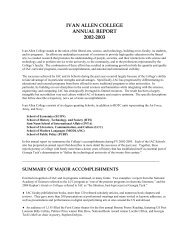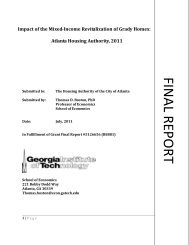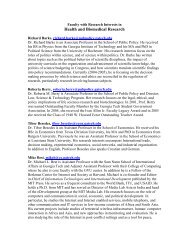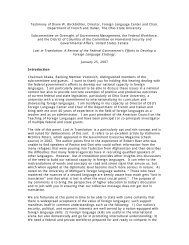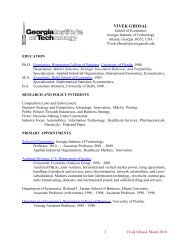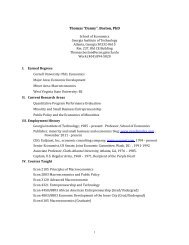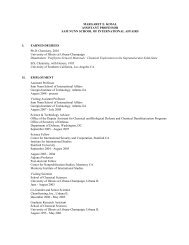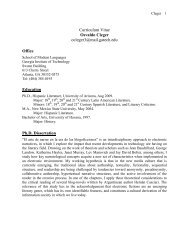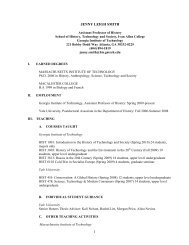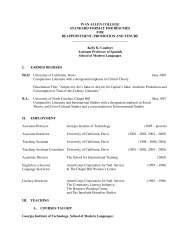Read this paper
Read this paper
Read this paper
You also want an ePaper? Increase the reach of your titles
YUMPU automatically turns print PDFs into web optimized ePapers that Google loves.
with the diegetic silence of the protagonist, signifying the powerlessness<br />
of any speech. His bewilderment, his dignity, and his struggle over his<br />
self-worth all seem to be encapsulated in the lyrics “Wen cangtian, sifang<br />
yundong / Jian zai shou, wen tianxia shui shi yingxiong?” (Ask the deep<br />
blue sky, clouds moving in all directions. With sword in hand, I ask the<br />
world, who is the hero?).<br />
In <strong>this</strong> section, I have described the use of local language versus<br />
Putonghua Mandarin in the framework of public and private spaces<br />
defined by the soundtrack. The analysis has explored how popular songs,<br />
as an integral part of the soundtrack, serve the empathetic function for<br />
the silent protagonist. The local dialect, as the everyday language for the<br />
local community, is extensively used in both public and private spaces. By<br />
contrast, Putonghua Mandarin, symbolizing the mainstream, is subdued<br />
most of the time as background noise in the heteroglossic public space.<br />
Virtually no character speaks standard Putonghua, and none are depicted<br />
in the heroic light typically found in mainstream films. To a large degree,<br />
the local language in Jia’s films is associated with the marginal—those not<br />
(well) absorbed into mainstream society.<br />
The Tension Between Diegesis and Mimesis in Platform<br />
Popular music continues to play an important role in Jia’s next film, Platform,<br />
which follows the lives of four performers in a local Fenyang troupe from<br />
the late 1970s to the early 1990s. As Kermode (1995: 9) argues, “more than<br />
any other art form, pop music is a disposable, transient product which<br />
reflects, mimics, and occasionally shapes the zeitgeist. As such, pop music<br />
can serve as a film’s memory, instantaneously linking it with its audience,<br />
tapping into a nostalgic past, or fixing the film firmly in the present.” In<br />
many interviews, Jia has recalled the enormous role of popular music in<br />
the lives of his contemporaries as they came of age (e.g., M. Berry 2003:<br />
61–62); <strong>this</strong> is abundantly evidenced in Platform. The numerous “classic”<br />
pop songs—whether the revolutionary song “Huoche xiangzhe Shaoshan<br />
Modern Chinese Literature and Culture • 175<br />
MCLC 18.2.indd 175<br />
12/20/06 2:01:36 PM


